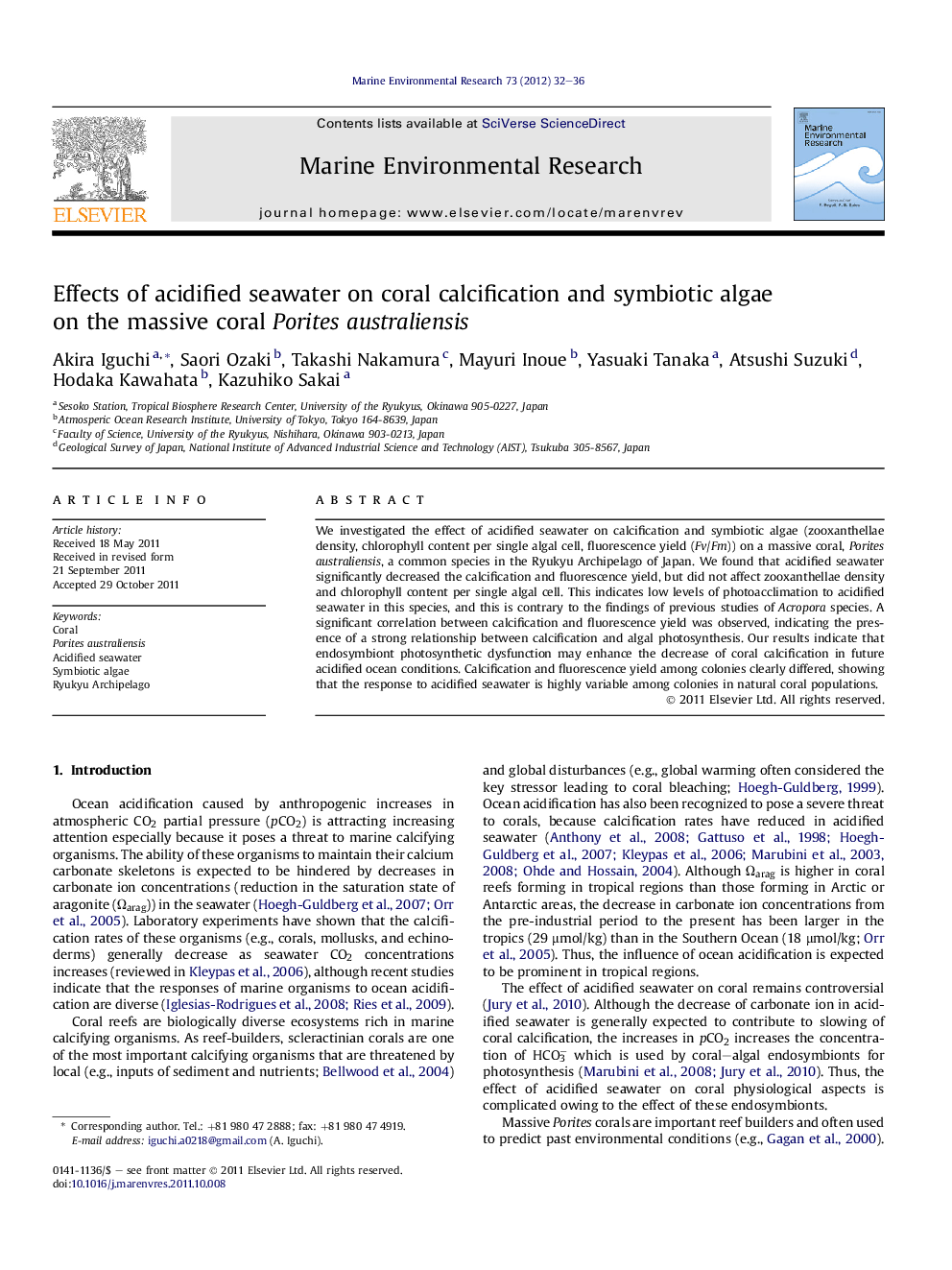| Article ID | Journal | Published Year | Pages | File Type |
|---|---|---|---|---|
| 4551089 | Marine Environmental Research | 2012 | 5 Pages |
We investigated the effect of acidified seawater on calcification and symbiotic algae (zooxanthellae density, chlorophyll content per single algal cell, fluorescence yield (Fv/Fm)) on a massive coral, Porites australiensis, a common species in the Ryukyu Archipelago of Japan. We found that acidified seawater significantly decreased the calcification and fluorescence yield, but did not affect zooxanthellae density and chlorophyll content per single algal cell. This indicates low levels of photoacclimation to acidified seawater in this species, and this is contrary to the findings of previous studies of Acropora species. A significant correlation between calcification and fluorescence yield was observed, indicating the presence of a strong relationship between calcification and algal photosynthesis. Our results indicate that endosymbiont photosynthetic dysfunction may enhance the decrease of coral calcification in future acidified ocean conditions. Calcification and fluorescence yield among colonies clearly differed, showing that the response to acidified seawater is highly variable among colonies in natural coral populations.
► Acidified seawater decreased the calcification of coral Porites austlariensis. ► The fluorescence yield was also decreased in acidified seawater. ► The zooxanthellae density and chlorophyll were not changed in acidified seawater. ► Inflexible photoacclimation may enhance the susceptibility to acidified seawater.
